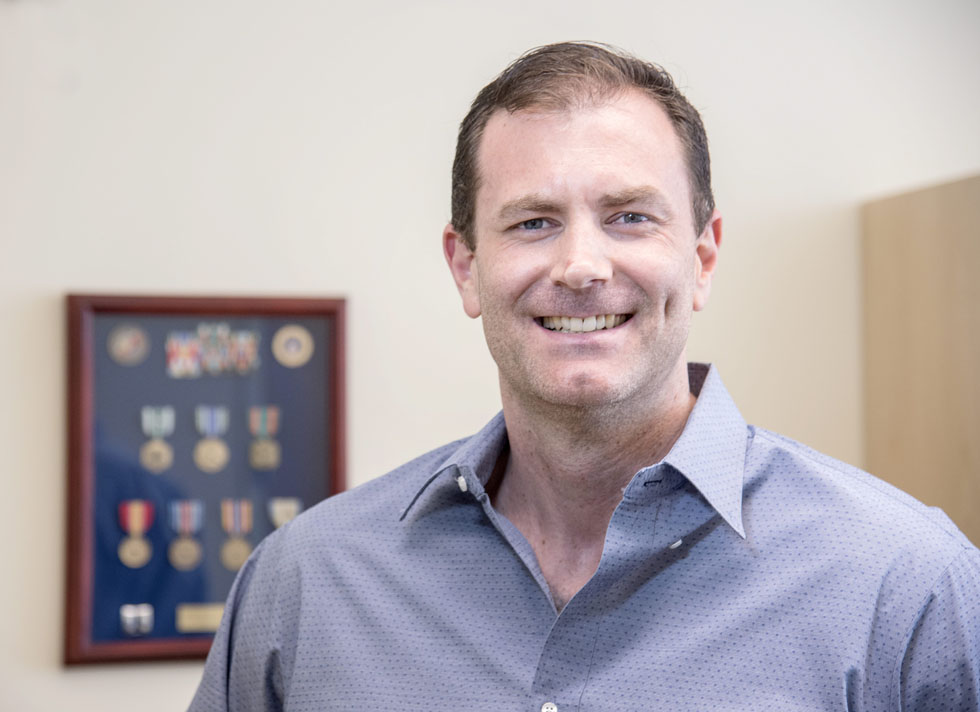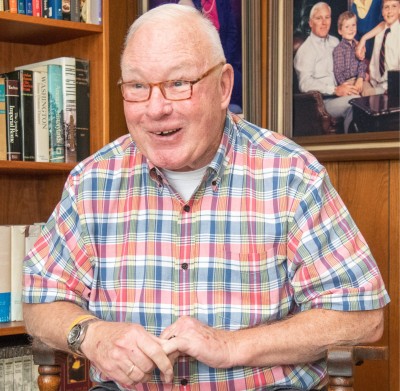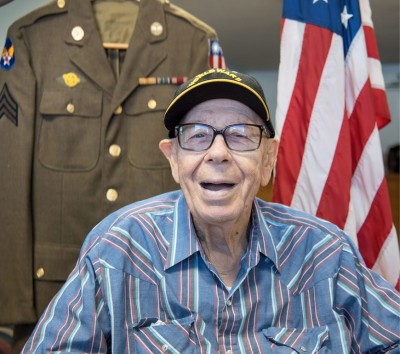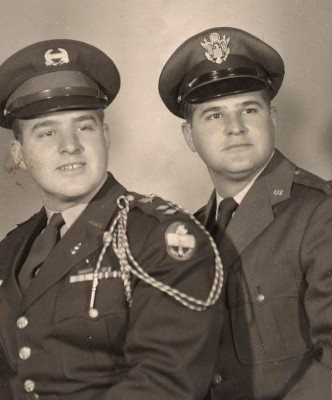Nicholas Osborne
By Paul Wood

Photo By Rick Danzl/The News-Gazette
URBANA — Lt. Nicholas Osborne served an 11-month deployment during Operation Iraqi Freedom before becoming director of the Chez Center for Wounded Veterans in Higher Education.
Part of the first job was checking for IEDs in vehicles that were shipped out.
Education was always part of the plan. But just as many World War II veterans enlisted after the Japanese attack on Pearl Harbor, Osborne’s life took a new turn after an attack on this continent.
The northern California native, 39, had just graduated from college and started his first job at a middle school when Osama bin Laden’s terrorists struck on Sept. 11, 2001.
He happened upon a Coast Guard recruitment center and joined the smallest of the seven uniformed services, smaller than the New York Police Department, Osborne noted.
“Joining was one of the best decisions ever,” Osborne said.
He served in the Coast Guard from 2002 to 2010, including eight years of total service on active duty and in the Reserves and was enlisted (starting as an ordinary seaman) before becoming an officer.
The hardest assignments were three “angel flights” to respectfully transport fallen soldiers.
The oddest moment was running into Col. Oliver North and chatting with him for a few minutes.
He watched for contraband in the Port of San Francisco.
“There are a lot of countries where law enforcement is corrupt, and people don’t trust you,” he said.
Osborne worked in intelligence and law enforcement capacities, including a year-long deployment to the Middle East.
There, his unit provided security. In Kuwait, ships coming through the Persian Gulf might transport vehicles with improvised explosive devices already aboard.
Dealings with some ships could be filled with tension.
“There are language, cultural and religious barriers,” he said.
The Coast Guard also monitored Gulf oil platforms, looked for oil spills and did search and rescue operations.
In his intelligence work, he had to “filter what’s credible” among a vast supply of information, which is work that’s transferable to higher ed, he said.
Osborne holds a doctorate in educational leadership and administration from the University of California at Davis, and leads the Chez Center for Wounded Veterans in Higher Education within the College of Applied Health Sciences.
He was hired at the University of Illinois in 2011 as an assistant dean of students, working as an “emergency dean.” Osborne was also hired to start a veterans office.
He started working at the Chez Center in 2013 and became director last year.
“The main goal of the Center is to provide a spectrum of individualized comprehensive services to better support the transition, retention, graduation and career success of military-connected students,” he said. “We also provide a lot of guidance and best practices of our model to colleges and universities across the country to help them in their pursuit of serving student veterans.”
He doesn’t know of any other large college-based resource for military-connected students in the country that also has a residential component.
“The center insulates military-connected students with an assortment of resources that address their multi-layered needs. We have an exceptionally high retention, meaning that most students that begin receiving services from us continue in their academic programs and transition into successful internships and careers,” he said.
He said veterans are often older and have had unique life experiences as a result of their service.
The center has all 14 of its residential rooms filled for this fall and more than 100 students registered and receiving services, he added.
Do you know a veteran who could share a story about military service? Contact staff writer Paul Wood at pwood@news-gazette.com.
Read more stories from local veterans:
 Gene Lamkin
CHAMPAIGN — Lt. Col. Gene Lamkin had a varied career: He was in Okinawa, then Vietnam, at the Pentagon for a while, spen …
Gene Lamkin
CHAMPAIGN — Lt. Col. Gene Lamkin had a varied career: He was in Okinawa, then Vietnam, at the Pentagon for a while, spen …
 Robert Weaver
Between bouts learning at and then teaching at Chanute Field in Rantoul, Robert Weaver served in World War II in North A …
Robert Weaver
Between bouts learning at and then teaching at Chanute Field in Rantoul, Robert Weaver served in World War II in North A …
 The Ellenberger-Brown family
Southwest of Champaign, Richard and Sheryl Brown Elllenberger live a life that has included being officers — she a capta …
The Ellenberger-Brown family
Southwest of Champaign, Richard and Sheryl Brown Elllenberger live a life that has included being officers — she a capta …